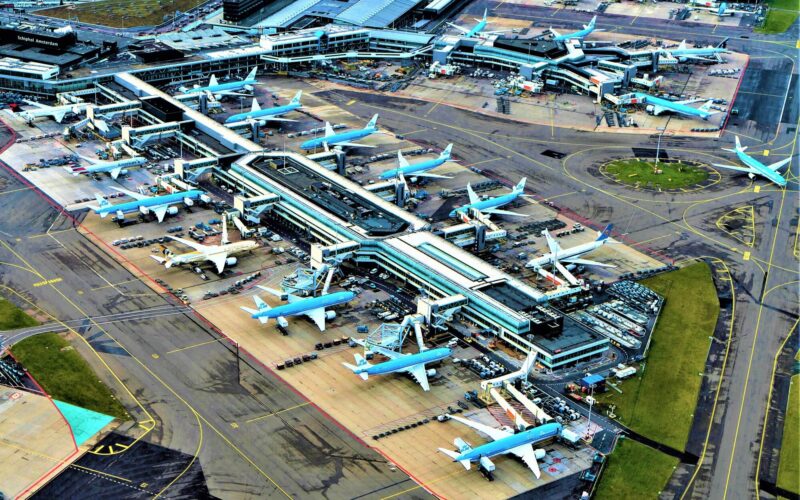Amsterdam’s Schiphol airport said it would continue to limit the daily number of passengers during the upcoming months due to ongoing security staff shortages.
Schiphol, the main international airport of the Netherlands and one of the busiest airports in Europe, said that the cap will remain in place until at least the end of March 2023.
“There will be a time towards the end of the year when we will look at whether more might be possible from the end of January. Schiphol has made this choice to provide travelers with a reliable travel experience, and predictability and stability for airlines,” the airport explained in a statement.
Travel at AMS has been disrupted on and off since April this year with flights cancelled and long queues due to security staff shortages. The shortages coupled with a greater-then-expected demand for air travel have further exacerbated problems.
“Together with unions and security companies, Schiphol is working on structural solutions to the staff shortage. Efforts include better rosters, improved rest rooms, and better wages for security company employees. Based on the capacity made available by Schiphol, the independent slot coordinator (ACNL) will consult with all airlines to arrive at the required capacity reduction,” the airline added.
According to Royal Schiphol Group chief operating officer (COO) Hanne Buis, the decision to cap is vital for the airport. “We want to ensure the safety of employees and travelers, in addition to providing a more reliable airport process. This affects travelers and airlines, which we of course consider very unfortunate.”
“Together with the security companies and unions, we are working hard on making structural improvements – a daunting task in a very tight labor market. It’s something to be realistic about. That’s why it will only become clear later this year whether more is possible after January,” the COO added.
“Simply unacceptable”
KLM Royal Dutch Airlines, the flag carrier of the Netherlands, released a statement, arguing that the cap on passenger numbers “is simply unacceptable”. The carrier said it “has no other choice” but to continue restricting flight ticket sales in an attempt to minimize “further [flight] cancelations”.
“This hopeless situation, lacking any perspective, has been in effect since May 2022. Schiphol has repeatedly called on KLM and other airlines, and hence our passengers, to resolve this persistent problem. The ongoing constraints on passengers boarding locally are damaging our reputation among passengers who are keen and willing to travel after the extended Covid crisis,” KLM said.
“Schiphol’s service standards – for airlines and their passengers – have been sub-standard for too long. This is damaging to KLM and is in stark contrast with the rising operational costs for the use of Schiphol, with increases of up to 37% in the coming years. Moreover, it is harming KLM’s carefully developed reputation, with damages already amounting to more than EUR 100 million,” the carrier added.
According to KLM chief executive Marjan Rintel, air carriers operating to and out of AMS airport were previously required to reduce the number of local boarding passengers by 18% in the summer period through to the end of October 2022. But following the recent decision, airlines will be now forced to cut their schedules for the upcoming winter season by up to 22%.
“KLM previously stated that the restriction of passenger numbers is not a long-term solution, but that seems to be where we are now headed. Schiphol’s newly announced restrictions for the winter season offer no perspective whatsoever,” Rintel concluded.

